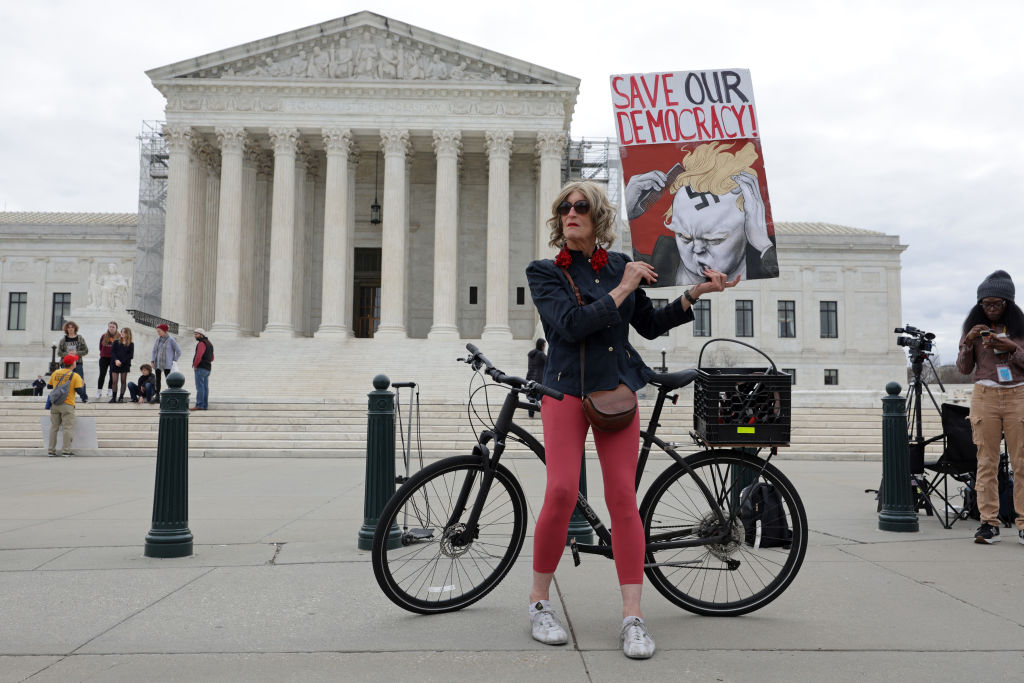In a big victory for democracy, but a big blow to the partisans of “Our Democracy™,” the Supreme Court of the United States just reversed the decision of the Colorado Supreme Court, which had determined that Donald Trump could not appear on the ballot for president in that state.
A coven of anti-Trump activists, desperate to stop the juggernaut that is the Trump train, argued that Section 3 of the Fourteenth Amendment, authorized them to remove Trump from the ballot because he had engaged in “insurrection” on January 6, 2021.
Let’s leave aside the question of whether the Fourteenth Amendment, designed to apply to rebels who had joined the Confederacy during the Civil War, even applies to the president.
Leave aside, too, that the January 6 jamboree was not an “insurrection.” The critical issue is that states do not have the authority to muck about with federal elections. In the more elevated language of the SCOTUS order, “This case raises the question whether the States, in addition to Congress, may also enforce Section 3. We conclude that States may disqualify persons holding or attempting to hold state office. But States have no power under the Constitution to enforce Section 3 with respect to federal offices, especially the Presidency.”
The bottom line? “The judgment of the Colorado Supreme Court therefore cannot stand.” The cherry on top: it was a unanimous decision. “All nine Members of the Court agree with that result.” Ergo: “The judgment of the Colorado Supreme Court is reversed,” quod erat faciendum, or, in the words of the document, It is so ordered.
Of course, it was always absurd that the anti-Trump brigade should pretend to save democracy by keeping Trump off the ballot because otherwise the people might vote for him. It was just another example of the malodorous fact that, for these people, “democracy” means “rule by Democrats,” not rule of the people.
The SCOTUS order is cheery news for partisans of genuine democracy, in which the people, not a cabal of self-appointed elites, get to decide who will govern us. But any cheer that is extracted from today’s decision should be tempered by the name John Roberts, chief justice of the Supreme Court.
In the past, Roberts has shown himself to be cautious to the point of cravenness when it comes to appeasing the left. Every time he decides something that favors the conservative principles of originalism, he seems to get nervous and prevail upon the susceptible members of the Court to do something to soothe the left. He did it with Obamacare, and he did it more recently with voting rights and redistricting cases. The question is, will he pressure his colleagues to throw Jack Smith a bone in the presidential immunity case that the Court just agreed to hear? Stand by.


























Leave a Reply